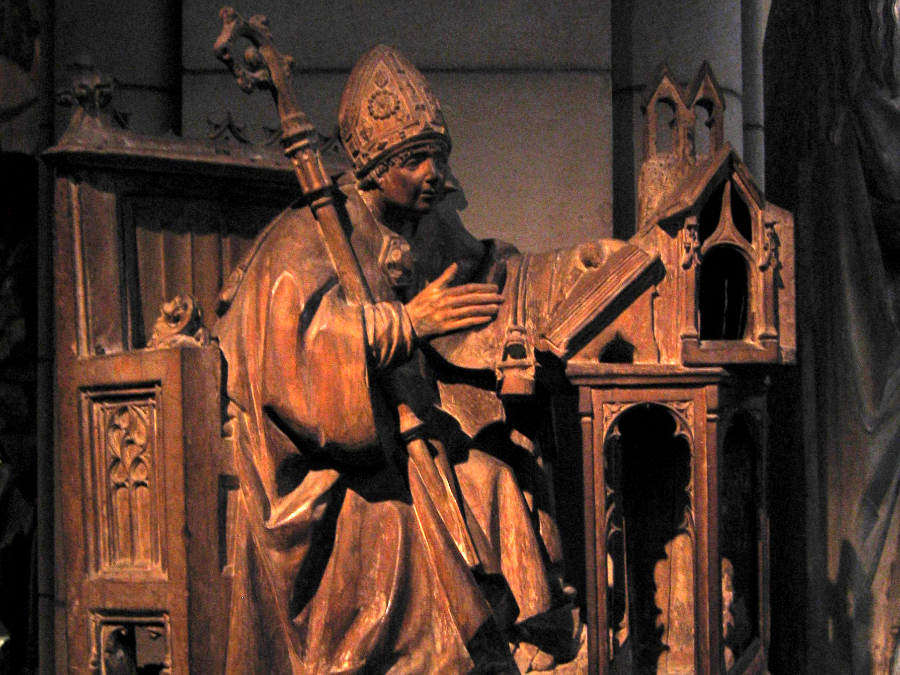
Digitally Mediated Togetherness
January 14, 2022
Anthony Woollard: How serious is sin?
January 18, 2022This is a summary of what Jesus was up to between his baptism by John and his final journey into Jerusalem. It was my sermon for All Hallows Leeds last Sunday.
It draws on the scholarship of the last 50 years. The main evidence is the gospels. Scholars also use other texts, together with information from classicists, anthropologists and sociologists who study what life was like in first century Galilee.
As scholars study the evidence, a consensus is emerging. Every detail is debated and there are still New Testament scholars who completely reject the direction of travel. But this is my way of making sense of the evidence.
There is one point which, I think, deserves more attention than it gets. A man from a peasant family in a backwater of the Roman empire started a movement. It is now known as Christianity. Two thousand years later, statisticians count a quarter of the world’s population as Christians. This makes Christianity the biggest social movement in human history, by a long way. How did that happen?
There are two kinds of scholar of whom I tend to be sceptical. One is the biblicists keen to the accuracy of the Bible, along with the most unlikely miracles. The other is the atheists who think nothing unusual happened so the rise of Christianity was just a succession of historical accidents. In my view what Jesus started must have been unusual, popular and important.
My account raises three obvious questions, which I address in turn: where Jesus and the Galileans got their ideas from, what happened next and why most churches today don’t talk about it.
Jesus in first century Galilee
The Roman empire was typical of ancient agricultural empires in that they set the tax rate so high that about 90% of the population were at or close to starvation.
As we know from recent British experience, when everybody is struggling people fall out with their neighbours. We can easily imagine the tensions. ‘That money I lent you, I need it back now, we’re starving!’ ‘But I haven’t got any money. I’m starving too.’
Jesus went round the villages of Galilee proposing a different approach. We are all in it together. We can’t do anything about the Romans and their taxes, but we can treat each other better. Cancel all debts. We come together, within the village, bringing whatever food we’ve got, and we share it equally, making sure everybody gets something to eat. As we eat, we don’t grumble about the Romans. We thank God for the gift of food. The Christian Communion Service is traditionally called the Eucharist because Eucharist is Greek for ‘thank you’.
How did Jesus persuade them to share their food? Because of the Hebrew scriptures, the Christian Old Testament.
Where did the ideas come from?
The rulers of those ancient empires justified their rule by claiming that their chief god had appointed them to raise taxes and conquer foreign lands. Of course most peasants would have preferred to live in peace, pay less tax, and not have their land periodically invaded by marauding armies. But conquering kings made sure any such radical ideas were suppressed.
There was one exception. Centuries before the time of Jesus, the Persian empire needed defences against rebellious Egypt, so they fortified Jerusalem and allowed the tiny state of Judea to govern itself with its own laws.
Those laws are the first five books of the Bible. If you read them you won’t think they are are terribly enlightened, but they were by the standards of that time. They protected the peasant farmers against exploitation. The best known law is the Sabbath. Every seven days everybody gets a day off work. Even the cattle get a day off work. It was the Jews who invented the week.
Those biblical laws are introduced by a preface summarising the logic behind them. The very first page of the Bible claims the opposite of what those conquering emperors were saying. God has created us to bless us. We are supposed to experience life as a blessing. It follows that when we don’t, something is wrong and needs to be put right.
So Jesus went round the villages of Galilee saying ‘We can’t do anything about the Romans, but what we can do is treat each other according to our laws’.
What was the result?
The New Testament book of Acts says that after the day of Pentecost,
All who believed were together and had all things in common; they would sell their possessions and goods and distribute the proceeds to all, as any had need.
Did they really? Many scholars have put this down to Luke idealising the first Christian community. Today more scholars think they really did. The writings of later Christians indicate that they carried on doing it.
The pagan culture of the Roman empire had no equivalent. The closest they got was the ‘good works’ expected of the wealthy elites who governed the cities. Tradition expected them to provide the citizens with food and entertainment at festivals, and build public buildings.
But every city also had large numbers of other people in them, who were not citizens. Usually they were destitute. The city elites ignored them. Only the Christians did anything for them.
Eventually emperors had to pay attention to the Christians. Diocletian persecuted Christianity; his successor Constantine supported it.
Perhaps we should sympathise with those pagan city elites with their ‘good works’ providing festivals and public buildings. If they wanted to climb the greasy pole and have a successful career, it would be in their interests to adopt the cult that the emperor approved of. They started to attend the churches.
And they heard sermons from bishops. Oh dear.
A lot of these sermons have survived. I’ll just quote three. Here’s Ambrose, bishop of Milan:
When giving to the poor you are not giving them what is yours, rather you are paying back to them what is theirs. What is common to all and has been given to all to make use of, you have usurped for yourself alone. The earth belongs to all, not only to the rich.
Basil, bishop of Caesarea:
If one who takes the clothing off another is called a thief, why give any other name to one who can clothe the naked and refuses to do so? The bread that you withhold belongs to the poor; the cape that you hide in your chest belongs to the naked; the shoes rotting in your house belong to those who must go unshod.
Basil created the world’s first public hospital and the world’s first job centre. If you want a job, go and help in the hospital. He did it by spending money he had inherited.
John Chrysostom, bishop of Antioch:
A woman should not walk past a beggar with the price of many dinners hanging from her ears.
John Chrysostom later became bishop of Constantinople, but didn’t last long there. Would you believe it, he fell out with the emperor’s wife. He was sent into exile.
These claims have a logic which echoes what Jesus was saying – and before Jesus, that biblical claim that God has provided enough for everybody so it should be shared.
What went wrong?
Governments don’t like it. As we know, governments like to enrich themselves.
Gradually these principles got watered down. But it took a long time. Even in the 17th century the Roman Catholic Church still treated it as a sin to walk past a beggar without giving anything, or to lend money at interest.
But then the religious wars killed them off. The religious wars were so bitter that governments looked for new ways to establish religious peace. Their solution was to redefine religion. From then on, they said, religion is nothing to to with this life; it is only about getting to heaven when you die. Religion was to be nothing to do with government, economics or politics.
So they reinterpreted Jesus. They turned him into a kind of timeless guru teaching universal truths.
Eventually biblical scholars had to admit that the gospels didn’t describe Jesus like that. For most of the 20th century the most influential theory of New Testament scholars was that Jesus believed the End was nigh. He was a preacher foretelling that God was about to bring history to an end. But it didn’t happen. Jesus was just plain wrong.
If that’s what Jesus was about, what were the churches going to do about it? Many of them decided that – well, we don’t really know anything about the Jesus of history, so we’ll concentrate on the Christ of faith.
When I started to study theology, these were the dominant ideas. Both the timeless guru Jesus, and the Jesus who got it wrong, left church leaders saying Jesus was the son of God, but unable to say why the people who lived and worked with him had called him the son of God. They could insist that he rose from the dead, but couldn’t say what that meant to the people who claimed to have seen him risen from the dead. They could say he was crucified to save us from sin, but they couldn’t say why the ruling classes in Jerusalem wanted him crucified.
In 1973 a new era began with the publication of a book called Jesus the Jew by a Jewish scholar Geza Vermes. Since then Jewish and Christian scholars have been collaborating on new research on Jesus.
I have briefly described the results of their research. Jesus responded to the situation of his time. He appealed to the biblical claim that the world has been created by a generous god who provides enough for everyone to live well. He encouraged starving people to share what they had with each other, making sure nobody goes without.
Conclusion
At our Communion service we continue the movement Jesus began. We share little pieces of bread – only tokens now, but still tokens of our commitment to a god who provides enough for everyone to eat well.
Today we have other methods to share with those in need. This church has its own distinctive ways to feed the hungry. When you do, congratulations. You are living the way you are designed to live. As you bless others, may you also receive blessing.





2 Comments
Geza Vermes went on to publish in 2003 “The Authentic Gospel of Jesus” which The Folio Society subsequently reprinted (with slight changes) in 2009. At over 400 pages it is no slouch. Maybe his Epilogue line is sufficient : Look for what Jesus himself taught instead of being satisfied with what has been taught about him. What do you think Jonathan?
Absolutely!